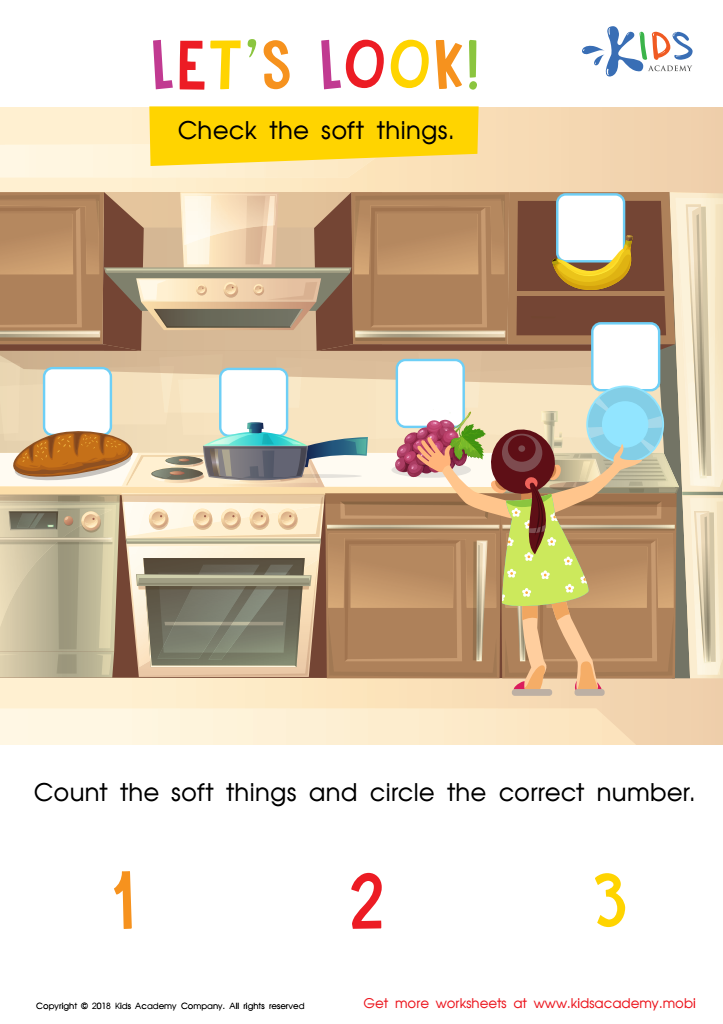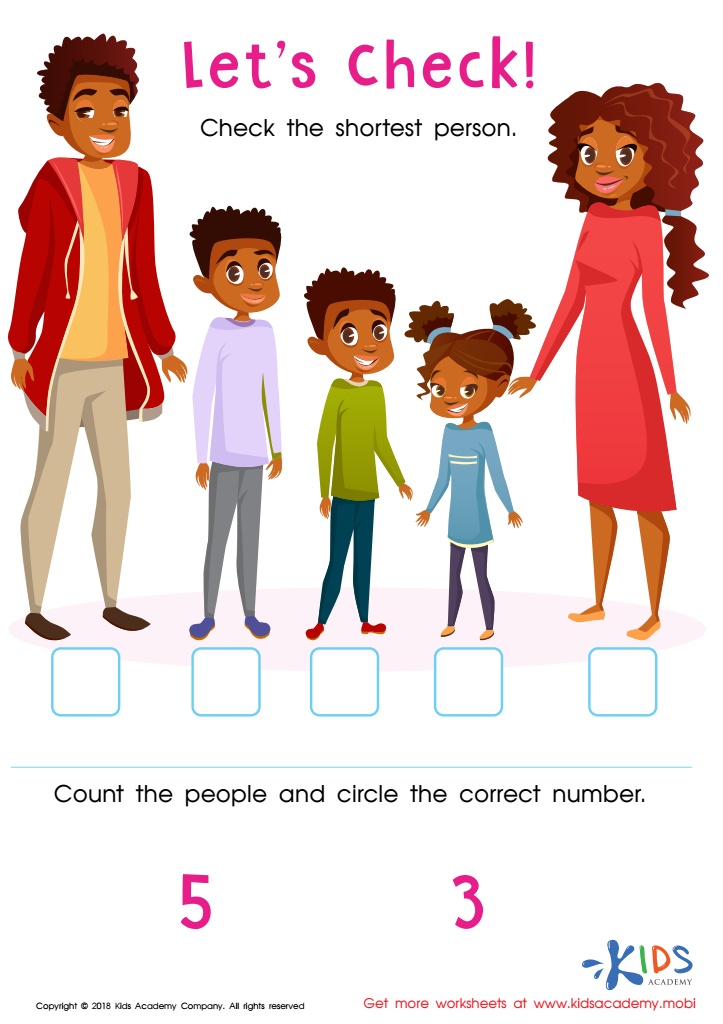Fun and Engaging Community-Themed Knowledge Check Activities for 4-Year-Olds - Free Printable Worksheets by Kids Academy
2 filtered results
-
From - To
Embrace Interactive Learning with Our Community Worksheets Activities
Dive into our enriching collection of Community Worksheets Activities, designed to inspire and engage learners of all ages. These activities are tailored to foster understanding, involvement, and appreciation for the community we live in. Ideal for educators, parents, and community leaders, our worksheets cover a broad spectrum of topics, from civic responsibilities to cultural celebrations. Engaging graphics and thought-provoking questions make each worksheet an adventure in learning. Embrace the opportunity to connect, reflect, and contribute positively with our Community Worksheets Activities. Perfect for classroom settings, homeschooling, or community workshops, let’s build stronger, informed, and proactive communities together.


Let's Look! Assessment Worksheet


Let's Check! Assessment Worksheet
Community worksheets activities play a crucial role in fostering an understanding of the diverse aspects that make up a community. These interactive tools are instrumental in teaching individuals, especially children, about the different components, roles, and values that define a community. By engaging in community worksheets activities, participants can gain a deeper appreciation for their local environment and the various relationships that sustain it.
One of the primary benefits of community worksheets activities is that they promote social awareness. Through thoughtfully designed exercises, participants learn about the importance of cooperation, respect, and empathy within a community setting. These activities often simulate real-life scenarios that require solving problems together, encouraging teamwork, and understanding the perspectives of others. This hands-on approach ensures that the lessons learned are not only theoretical but also applicable in daily interactions.
Furthermore, community worksheets activities are valuable tools for teaching civic responsibility. They introduce participants to the concept of active citizenship, where individuals contribute positively to their community's development and well-being. By engaging in discussions and projects about community needs and services, participants learn the significance of volunteering, participating in local events, and understanding community governance.
Another advantage is the enhancement of cultural competence. Community worksheets activities often include elements that celebrate diversity and encourage participants to explore various cultural backgrounds present within a community. This fosters an inclusive environment where differences are not just tolerated but appreciated and understood.
In summary, community worksheets activities serve as an essential educational resource for developing informed, responsible, and compassionate community members. They help bridge gaps between different community segments, teach valuable life skills, and cultivate a sense of belonging and shared responsibility. By participating in these activities, individuals of all ages can contribute to building stronger, more cohesive communities.

 Assign to the classroom
Assign to the classroom












